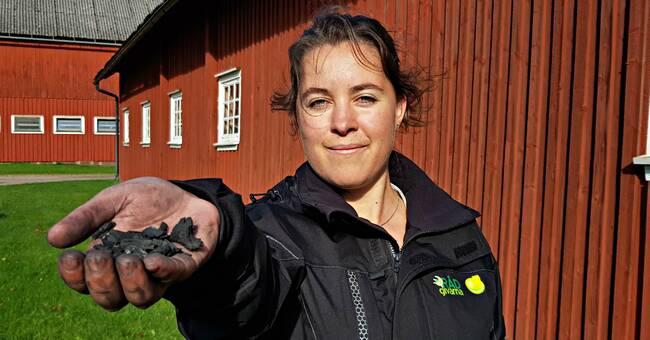The project has received EU funding of SEK 5.6 million.
The idea is to store carbon dioxide on farmers' land with biochar.
Something that will both reduce the amount of greenhouse gases in the atmosphere and enrich the agricultural land.
- It is a triple win, a win-win win for the climate, the environment and agriculture, says Cecilia Hermansson, project manager at Hushållningssällskapet Sjuhärad.
But can store carbon dioxide by growing more forest. Is not it easier?
- It's an easier way.
But it is also a less protracted way.
A tree, say an oak, stands for maybe a couple of hundred years while biochar is stable as a carbon sink for thousands of years.
Cecilia Hermansson believes that biochar would benefit agriculture by increasing yields and making the soil more resistant to drought, as biochar acts as a reservoir for water and nutrients.
In the clip above, Cecilia Hermansson shows how a carbon sink is created with biochar.
Expensive to buy biochar
Today, according to Hushållningssällskapet, it is not economically sustainable to use biochar because it is too expensive.
But in the project, a standard for carbon sink dishes will be developed.
Then farmers would be able to sell carbon dioxide rights to companies.
- It is like a climate compensation, says Cecilia Hermansson.
Sees a risk
Biochar can be produced from, among other things, garden waste or residues from deforestation.
But Cecilia Hermansson sees a potential problem with biochar.
It must be manufactured from the right kind of source.
- That it does not come from, for example, felled forest from the rainforest.
But is there no risk, if there is increased pressure, that it actually comes from such sources?
- There is a risk.
There, you are responsible both as a producer and consumer of biochar to take your responsibility.

